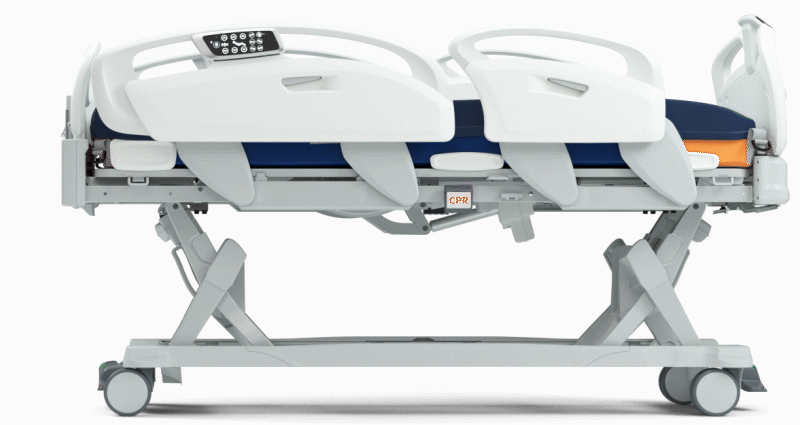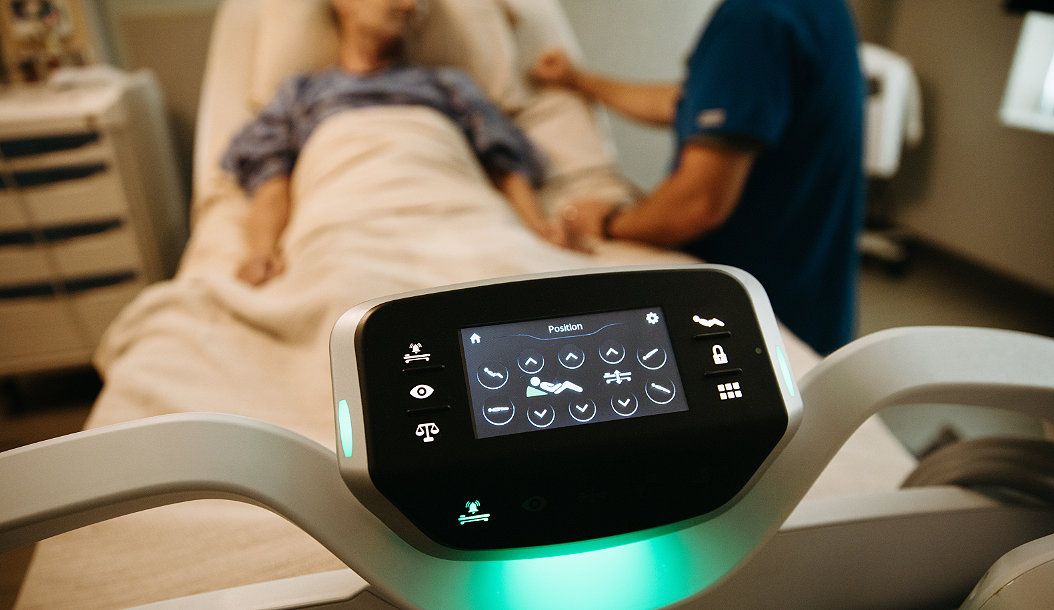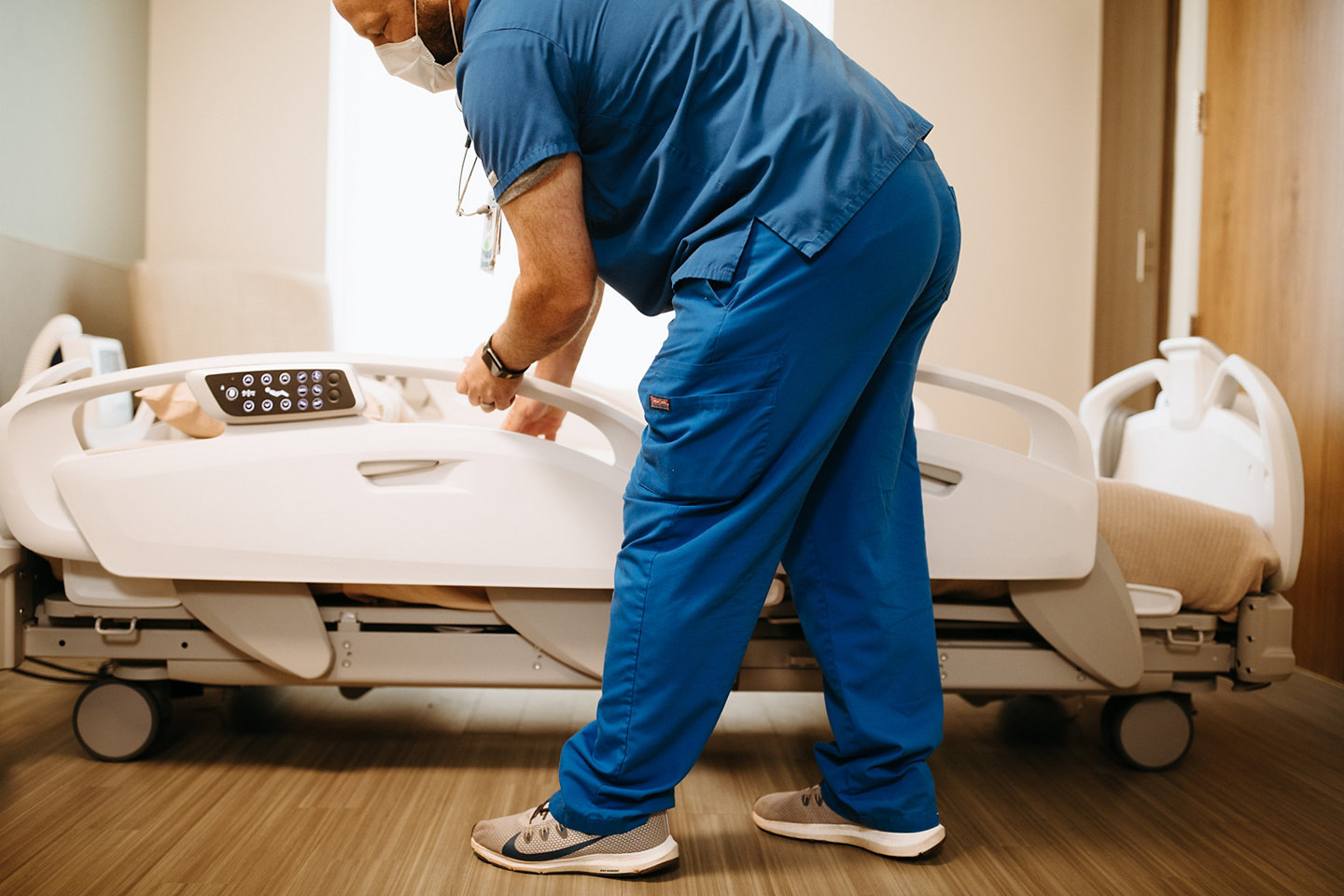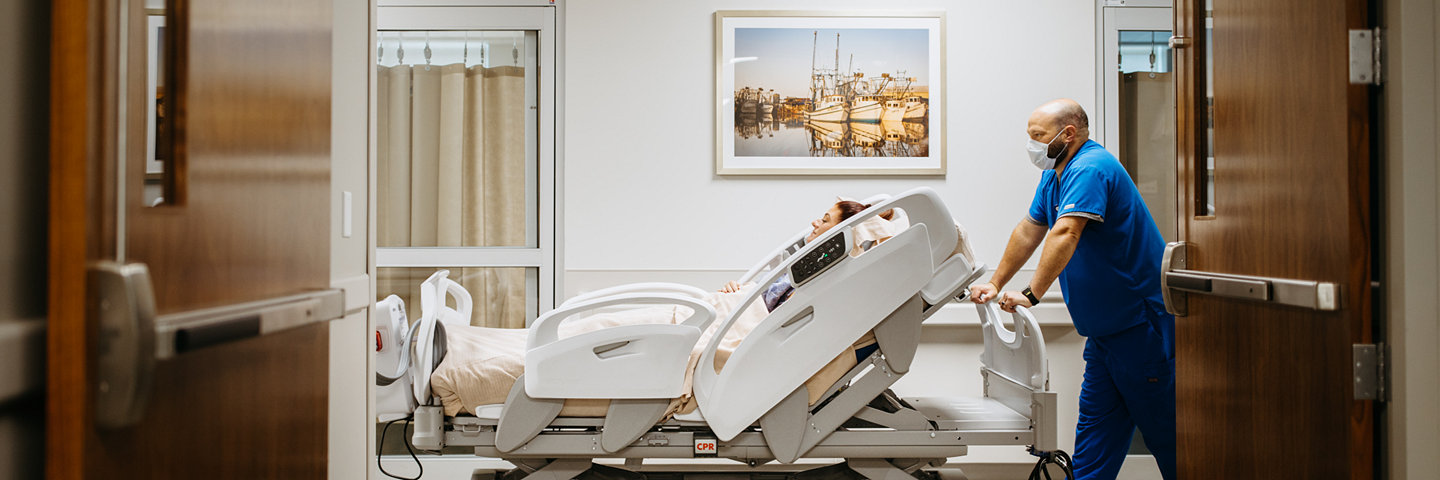08-Dec-2020
Every year, up to one million patients experience a fall while being treated in the hospital1, with 79 percent of falls occurring on or near a bed while unassisted2. In addition, anywhere from 30 to 51 percent of in-hospital falls result in injuries3. To address this issue and deliver on our mission to make healthcare better, we developed the ProCuity bed series.
In 2016, after more than six years of research, our R&D team began to design our safest and most intelligent bed to date. We utilized more than 400 hours of customer research and input, as well as insights from more than 1,500 nurses and other medical professionals to bring ProCuity to our customers.
The result: A bed pairing industry-low height with the quality, durability, and technology that our customers rely on.
“More than 100 Stryker employees in R&D, operations engineering, regulatory, industrial design, project management and marketing came together with passion, purpose and intensity to deliver on our mission of making healthcare better for our customers. We are excited to bring ProCuity – and its exclusive wireless capabilities – to market in more than 70 countries around the globe in the coming months,” said Josh Mix, senior director of R&D at Stryker’s Medical division.

Data-driven design
We designed every inch of ProCuity with safety, patients, and caregivers at the forefront in our minds. Our research reinforces why bringing a bed innovation like ProCuity to market was so urgently needed. For example, our study found that an overwhelming majority (97%) of nurses report having encountered a situation where a patient has had difficulty getting out of a hospital bed4. Additionally, three quarters (75%) of nurses report having experienced a situation where a patient has hurt themselves while getting out of a hospital bed4.
Our project team ensured ergonomic design with the latest technology to improve safe patient handling and fall prevention. For example, our bed is set to an industry-low height of 11.5 inches, as there is a clear correlation between low bed height and reduced occurrence of fall-related injuries. This makes ProCuity the lowest bed on the market that can still deliver large, sturdy 6 inches casters and allows space for patient lifts and over-the-bed tables.
Our three-position siderails enable patients to safely enter and exit the bed while the bed is in an upright position, while also allowing for easier interaction between nurses and patients. Additionally, if a patient is out of position or leaves the bed, our exclusive Adaptive Bed Alarm changes sensitivity based on siderail configuration, helping to reduce fall risk.

ProCuity is the first and only completely wireless hospital bed, seamlessly and wirelessly connecting to both nurse call and hospital information systems via Secure Connect, helping nurses save time and improve their workflow. It also accommodates patients anywhere in the hospital – from a general patient room to the ICU.
Caregivers will realize that our bed saves them time and physical energy with electric brakes, our Zoom motorized drive system, smart prompts on the user interface and ability to be utilized across all patient acuity levels. The cableless connection to nurse call helps avoid technical glitches with traditional physical cables, enables nurses to receive important patient and bed information seamlessly, and serves as a bed locator.
“We have listened and heard what our customers want and need in a patient bed, used that information and leveraged our years of innovation to deliver a new standard of care,” said Mix.

70 countries
References:
1 Agency for Healthcare Research and Quality. Preventing Falls in Hospitals. Retrieved December 5, 2018. https://www.ahrq.gov/professionals/systems/hospital/fallpxtoolkit/index.html
2. Design Powered by Research: Improving Patient and Caregiver Safety Through Evidence-Based Design. Guy Fragala. August 2020.
3 Oliver, D., Healey, F., Haines, T. (2010) Preventing falls and fall-related injuries in hospitals. Clin Geriatric Medicine, 26:645-692
4 The State of Hospital Beds. May 2020. A Stryker-commissioned survey, prepared by Pinkston
Stryker Corporation or affiliated entities own, use or have applied for the trademarks or service marks: ProCuity, Secure Connect, Zoom, Stryker. All other trademarks are trademarks of their respective owners or holders. The absence of a product, feature, or service name, or logo from this list does not constitute a waiver of Stryker’s trademark or other intellectual property rights concerning that name or logo.
MKT LIT-2101 26 OCT 2020 REV A

